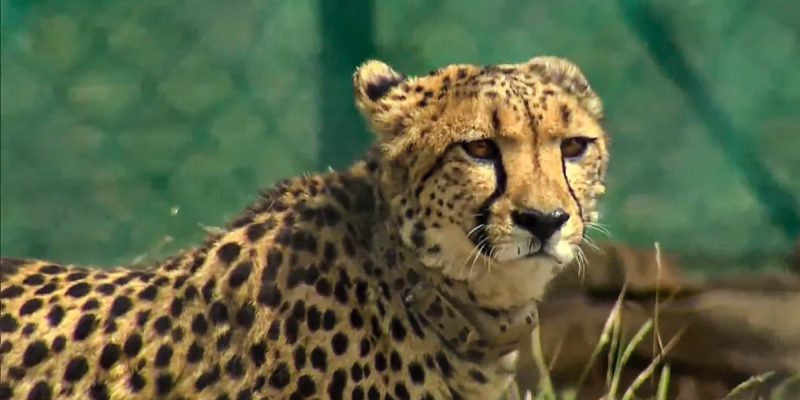Infection
India Seeks to Import Cheetahs That Do Not Develop Thicker Winter Coats to Prevent Infections
New Delhi: India is looking to import cheetahs that do not develop thicker winter coats. Thicker coats have been identified as a primary factor leading to severe infections in certain cheetahs, resulting in the death of three cheetahs relocated from Africa to India, the head of the reintroduction project told news agency PTI.
S.P. Yadav, Additional Director General of Forests at the Environment Ministry, told PTI that Project Cheetah’s focus in its second year would be on breeding these animals.
He said that the radio collars cheetahs worn by the cheetahs did not cause any infections. However, authorities have decided to replace these collars with new ones from the same South African manufacturer.
The next batch of cheetahs will be brought from South Africa and introduced into Madhya Pradesh’s Gandhi Sagar Wildlife Sanctuary, S.P. Yadav, Additional Director General of Forests at the Environment Ministry, told PTI.
The sanctuary is expected to receive them by the end of the year, he added.
“It’s mentioned in the Cheetah Action Plan that Kuno has a carrying capacity of about 20 cheetahs. Right now, there are 15 cheetahs including a cub, and when we will bring the next batch of cheetahs in the country, it will be at some other place. We are preparing two such sites in Madhya Pradesh, one is the Gandhi Sagar Sanctuary, and the other is Nauradehi.”
“The site preparation at the Gandhi Sagar Wildlife Sanctuary is going on in full swing, I’m expecting that it will be completed by the end of November or December. Once we get the report of completion, we’ll go to the site, we’ll evaluate it from all preparation points of view. And after December, we’ll take a call on bringing cheetahs,” he said.
Yadav said that one of the primary challenges encountered during the first year of managing cheetahs in India was the unexpected development of winter coats by certain cheetahs during the summer and monsoon season. This was in anticipation of the African winter from June to September.
He further said that even African experts did not anticipate this phenomenon.
Under Project Cheetah, a total of 20 animals were imported from Namibia and South Africa to Kuno in two batches – one in September last year and the second in February this year.
Since March, six adult cheetahs have died for various reasons. In May, three out of the four cubs born to a female Namibian cheetah died due to extreme heat. The sole surviving cub is currently being nurtured under human care with the intention of eventually reintroducing it into the wild.
Project Cheetah will complete a year on Sunday, September 16.

